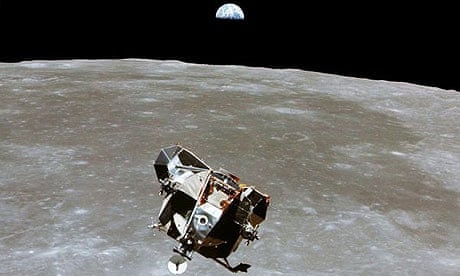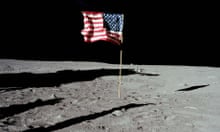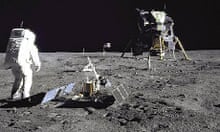The announcement of an end to immediate ambitions for an American to again reach the moon, on the seventh anniversary of the Columbia space shuttle disaster, sets the stage for a furious battle in Congress over US manned space exploration.
Politicians from Florida, Texas and Alabama, three states that have lost thousands of jobs in the space industry from this year's planned retirement of the ageing shuttle fleet, promised a fight to keep the moon programme, Constellation, alive.
"They are replacing lost shuttle jobs too slowly, risking US leadership in space to China and Russia, and relying too heavily on unproven companies," said Bill Nelson, a Democratic Senator for Florida and former astronaut who flew one mission in 1986.
Michael Griffin, who resigned as Nasa chief when Obama took office, branded the plan "disastrous", likening it to Richard Nixon's cancellation of the Apollo programme in the 1970s. "It means that essentially the US has decided that they're not going to be a significant player in human space flight for the foreseeable future," he told The Washington Post.
Nasa has already spent more than $9bn on Constellation, including testing the Ares I rocket that was to have replaced the shuttle as transport from Earth to the international space station and beyond. The programme was "based largely on existing technologies, over budget, behind schedule, and lacking in innovation", according to Obama's budget report.
"The truth is that we were not on a path to get back to the moon's surface," said Charles Bolden, the new Nasa administrator.
"There will be challenges as a result of cancelling Constellation, [but] the funding for Nasa is increasing, so we expect to support as many if not more jobs." The budget gives Nasa $19bn for 2011, and $100bn over the next five years; the proposal also extends the international space station until 2020.






